Things You Should NEVER Clean With Disinfecting Wipes
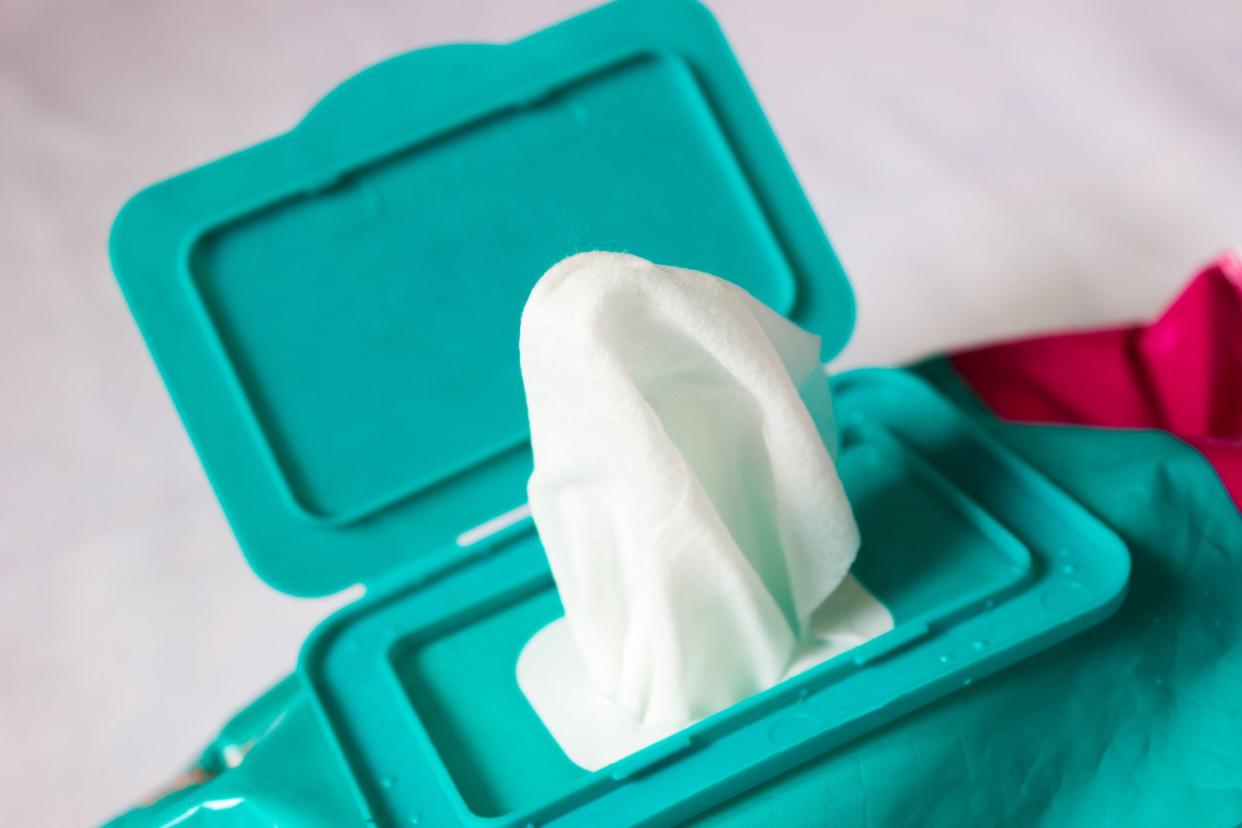
Think Twice Before You Wipe
When you buy disinfecting wipes, you may want to use them on almost everything. But don't do it. On certain surfaces, disinfecting wipes can do a lot more harm than good. Save them for the hard, nonporous surfaces not on this list, manufacturers recommend.
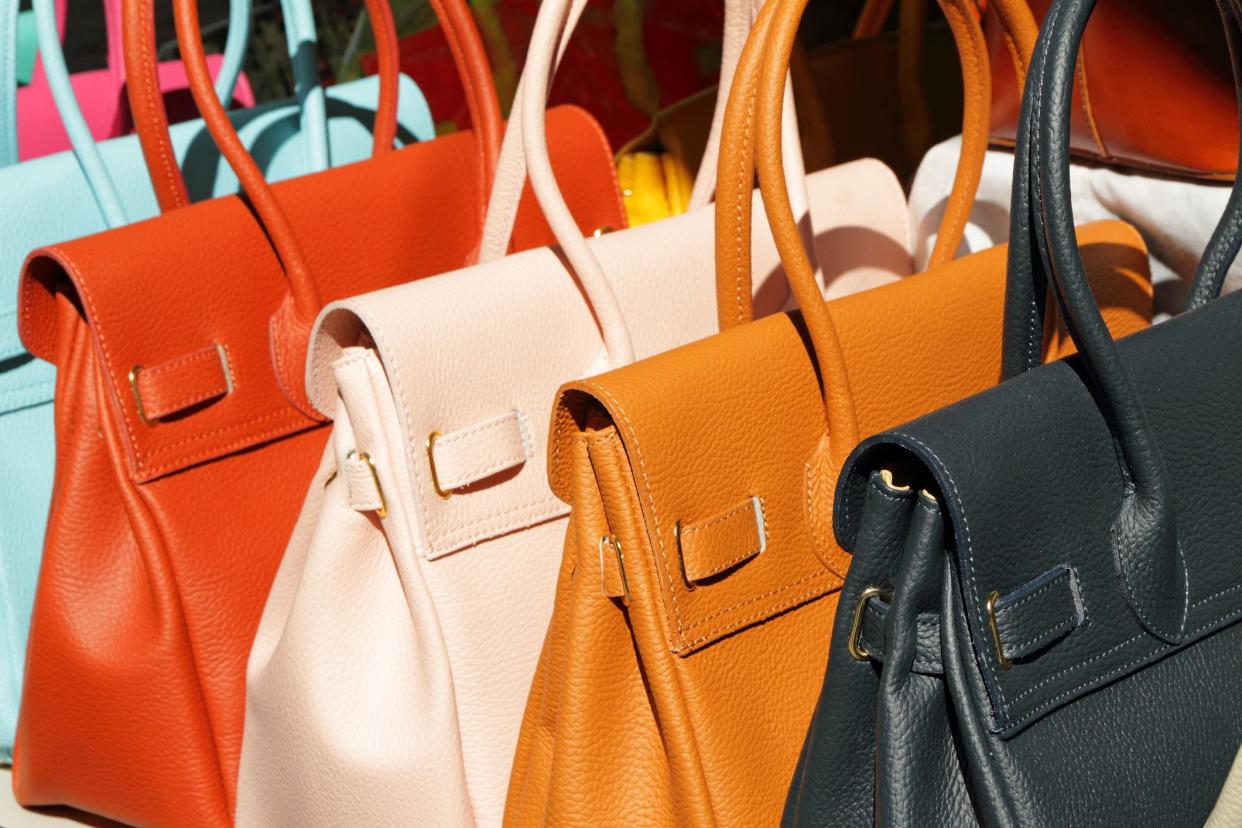
Leather Purses or Upholstery
No matter your lifestyle, a well-loved handbag can get filthy. So can your leather car seats or furniture. While disinfecting wipes seem like a quick way to clean them, they contain alcohol and ammonia that can dry out the supple leather and damage its finish. Instead, opt for a commercial leather cleaner, or try a mix of warm water and dish soap, taking care not to soak the leather.

Granite Countertops
Tempted to clean those gleaming granite countertops with disinfecting wipes? Use caution. Repeatedly scrubbing them with the acidic wipes can break down the sealant on the granite, leaving them vulnerable to long-term damage. For daily cleaning, you can simply use dish soap and hot water. To disinfect them, a spritz of isopropyl alcohol can do the trick, according to the Kitchn.
Related: Do Diluted Detergents, Soaps, and Shampoos Still Work?
For more helpful household tips, please sign up for our free newsletters.
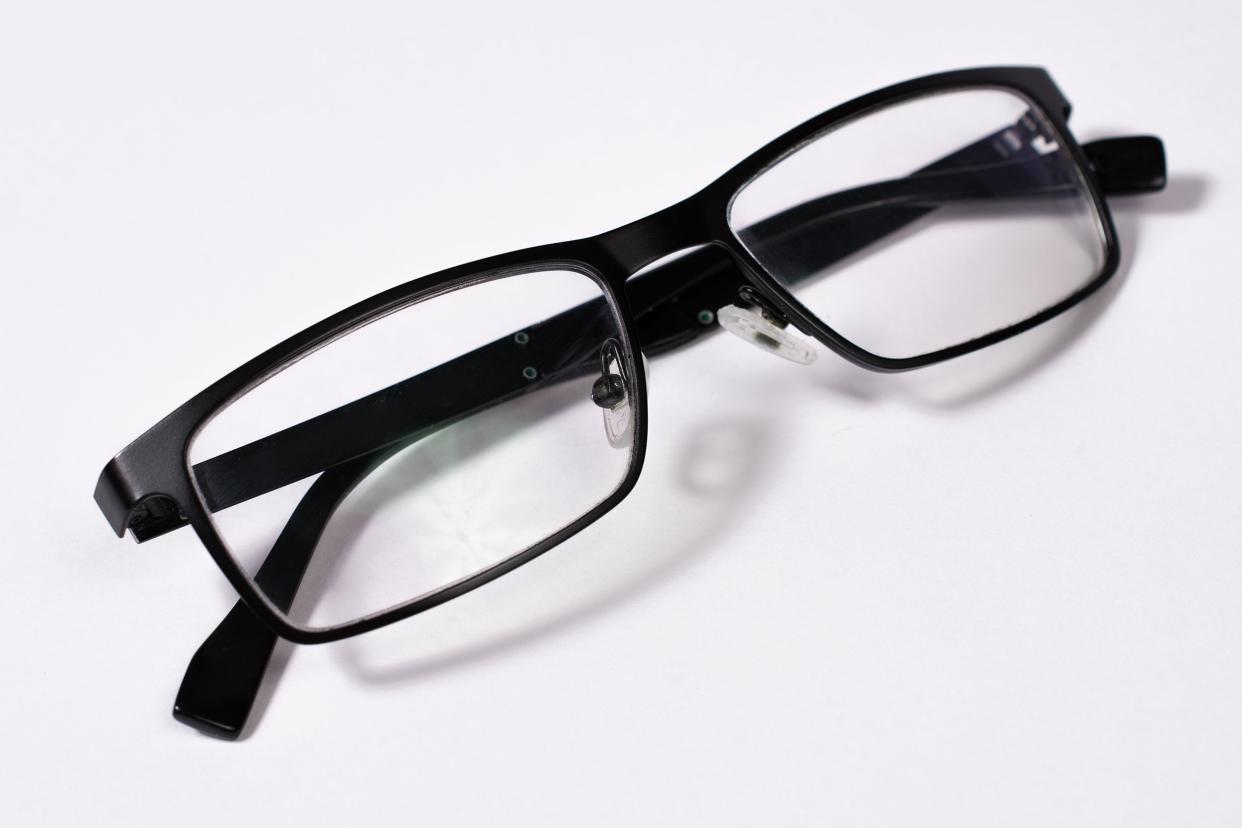
Eyeglasses
Resist the urge to swipe your specs with disinfecting wipes, because they can eat away at the delicate lens coatings, experts say. Instead, clean glasses with a drop of dish soap and warm water, or use a commercial lens cleaner with a soft cloth.
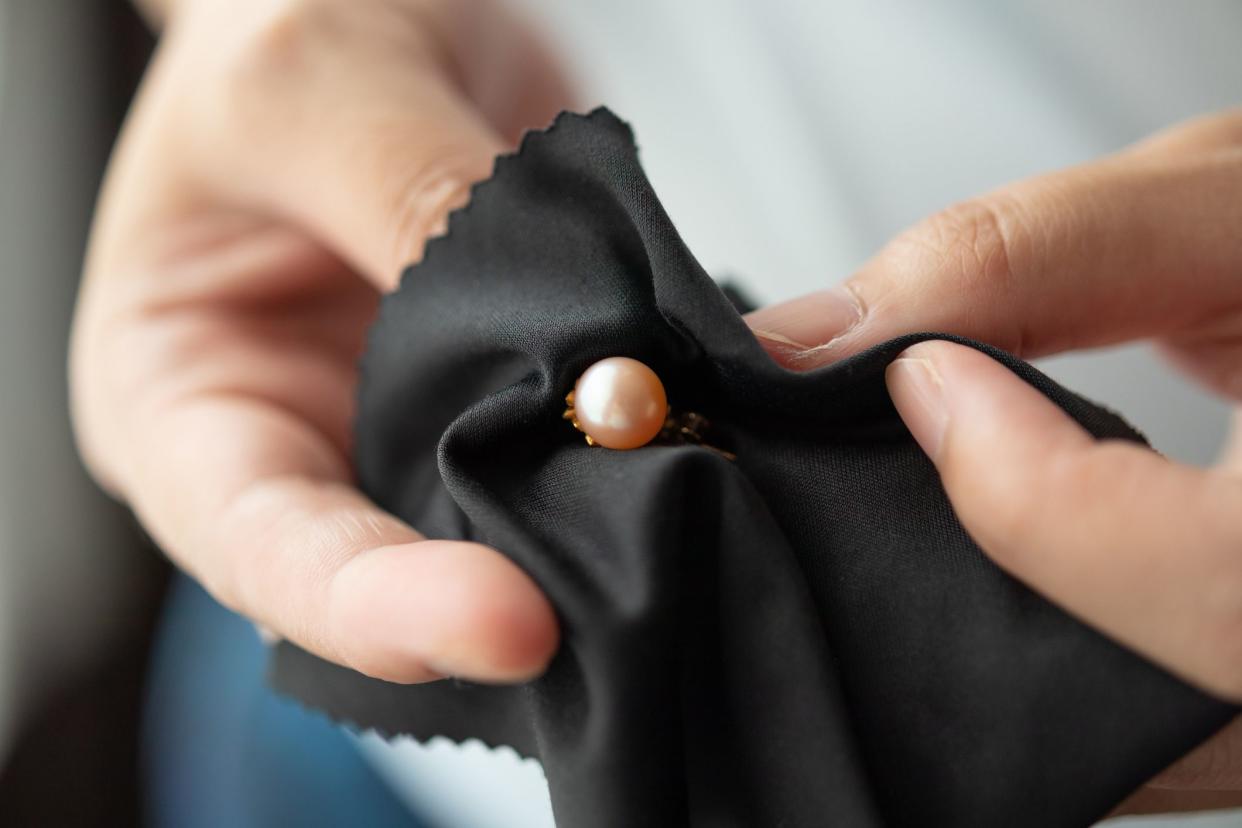
Pearl Jewelry
Swiping and scrubbing those heirloom pearls with alcohol-infused disinfecting wipes isn't a good idea. They can damage softer stones including pearls, opals, and emeralds. Pearls are also susceptible to damage from ammonia, also typically found in wipes. Again, all you really need here is warm water and a mild soap, experts say.
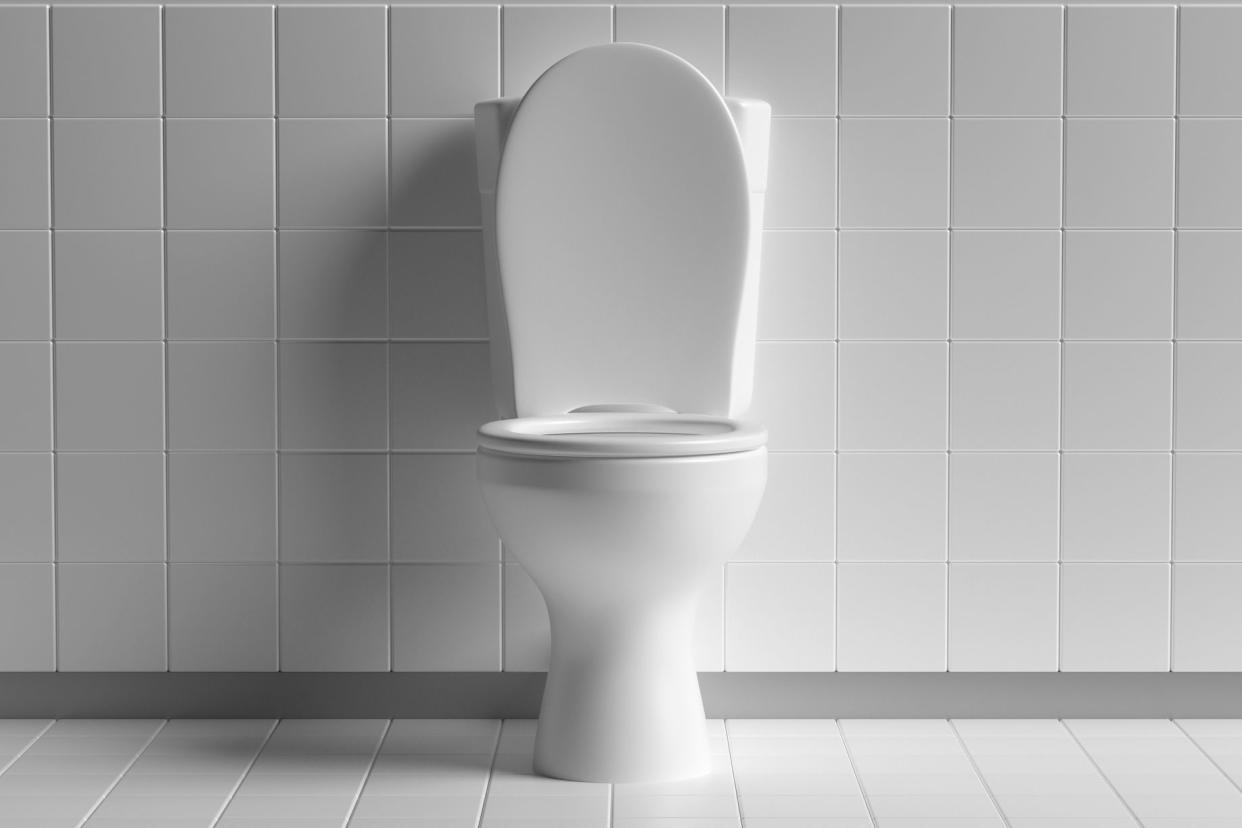
Your Toilet and Plumbing
Your toilet can be ground zero for germs, and you can certainly use disinfecting wipes to clean the seat and exterior with no ill effects. But there's a big catch: Never, never flush them when you're done, experts warn. Unlike toilet paper, wipes don't adequately dissolve when they're flushed, which can clog your pipes and mean big plumbing bills in the long run.
Related: 17 Lies That Plumbers Tell to Drain Your Wallet
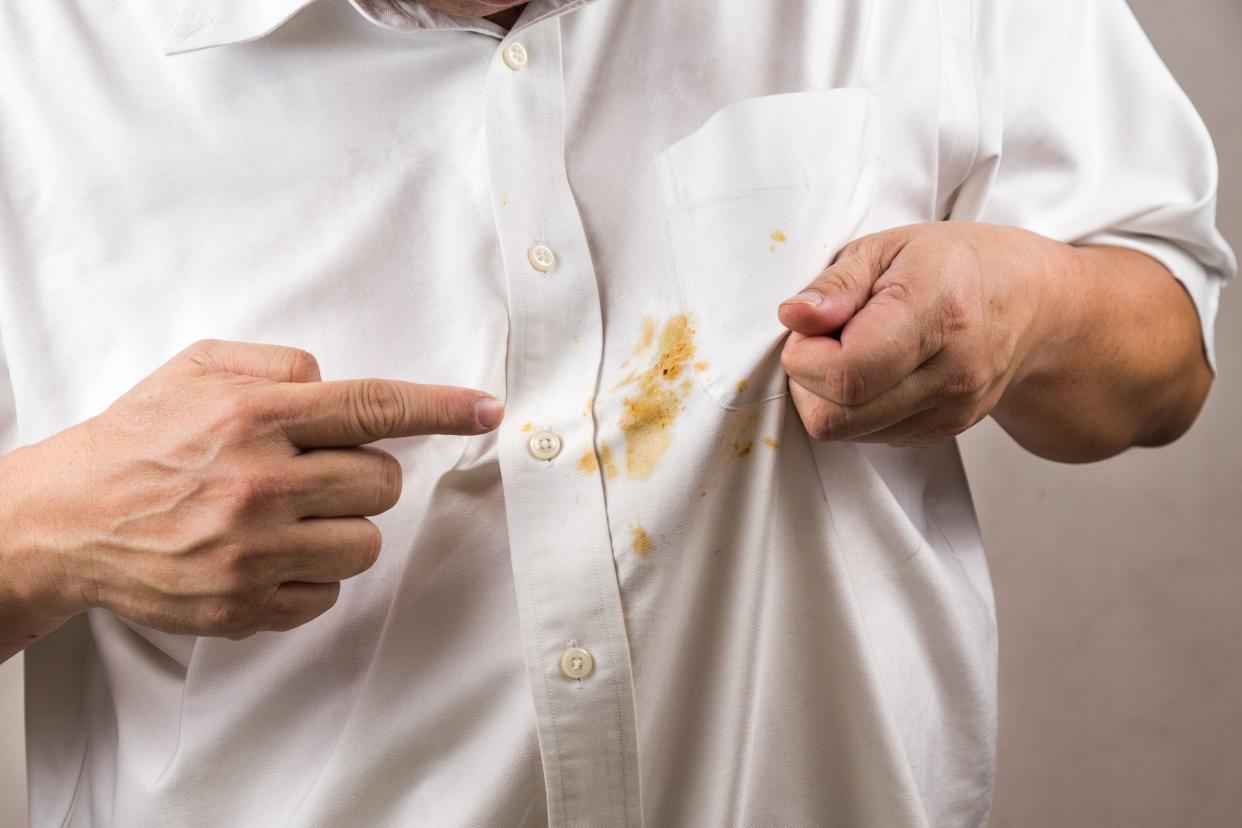
Delicate Clothing
Got an embarrassing midday stain? Scrubbing at it with a disinfecting wipe may make it less noticeable, but it won't do certain types of clothing any favors. The alcohol in the wipes can fade colors and damage more delicate acrylic and acetate garments. Our favorite way to clean up in a pinch? Portable stain solutions like Tide to Go.
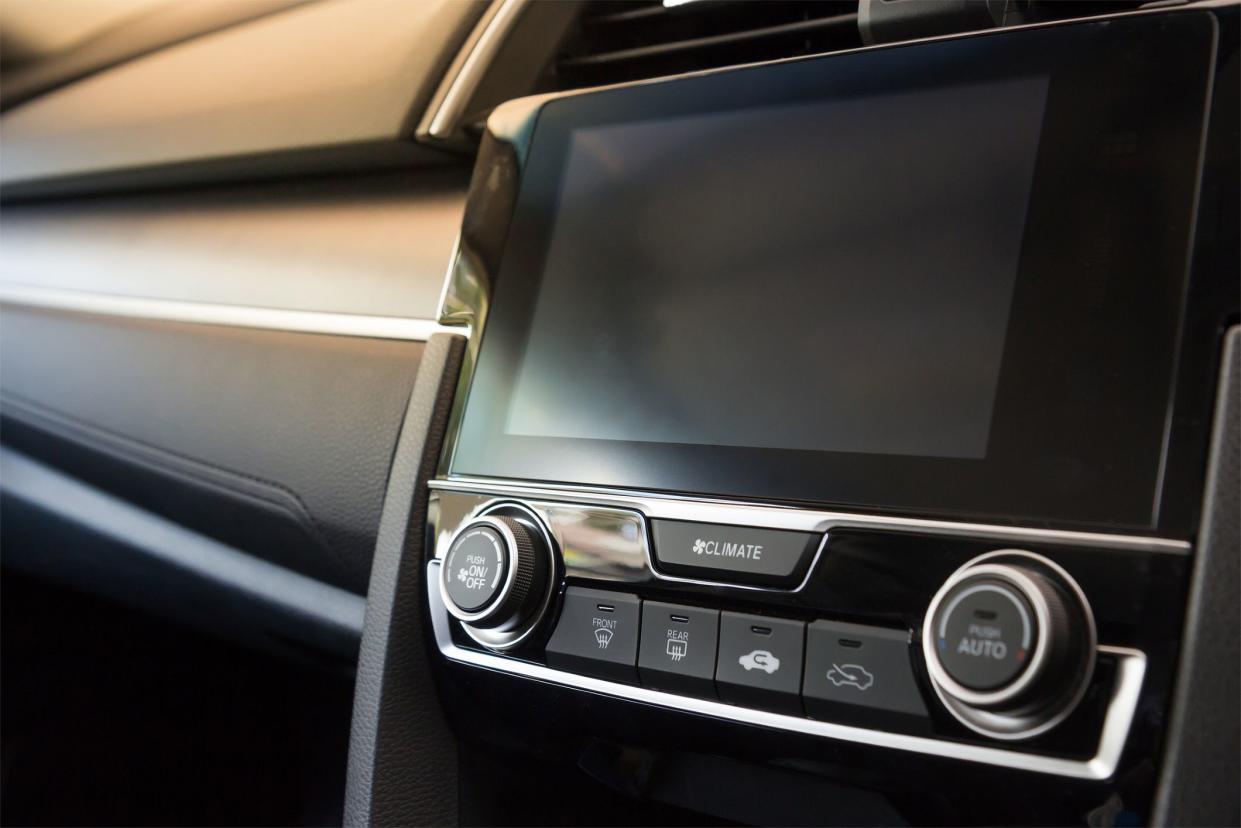
Vehicle Touchscreens
Your greasy fingerprints are all over it, but put those disinfecting wipes away. The alcohol and ammonium compounds in the wipes can eat away the screens' protective coatings and eventually cause fogging or blotching, manufacturers warn. Instead, clean these screens with soap and water, taking care not to get them too wet. Nissan also recommends wipes specially formulated for screens, but specifically warns against any that are "anti-microbial."

Produce
We hope we don't need to tell you this, but you should never clean fruit, veggies, or any other food with disinfecting wipes, as the ingredients are not meant to be ingested and may lead to vomiting. The FDA says all you need to do is rinse, rub, or scrub produce under running water to make it safe to eat (you don't even need soap).
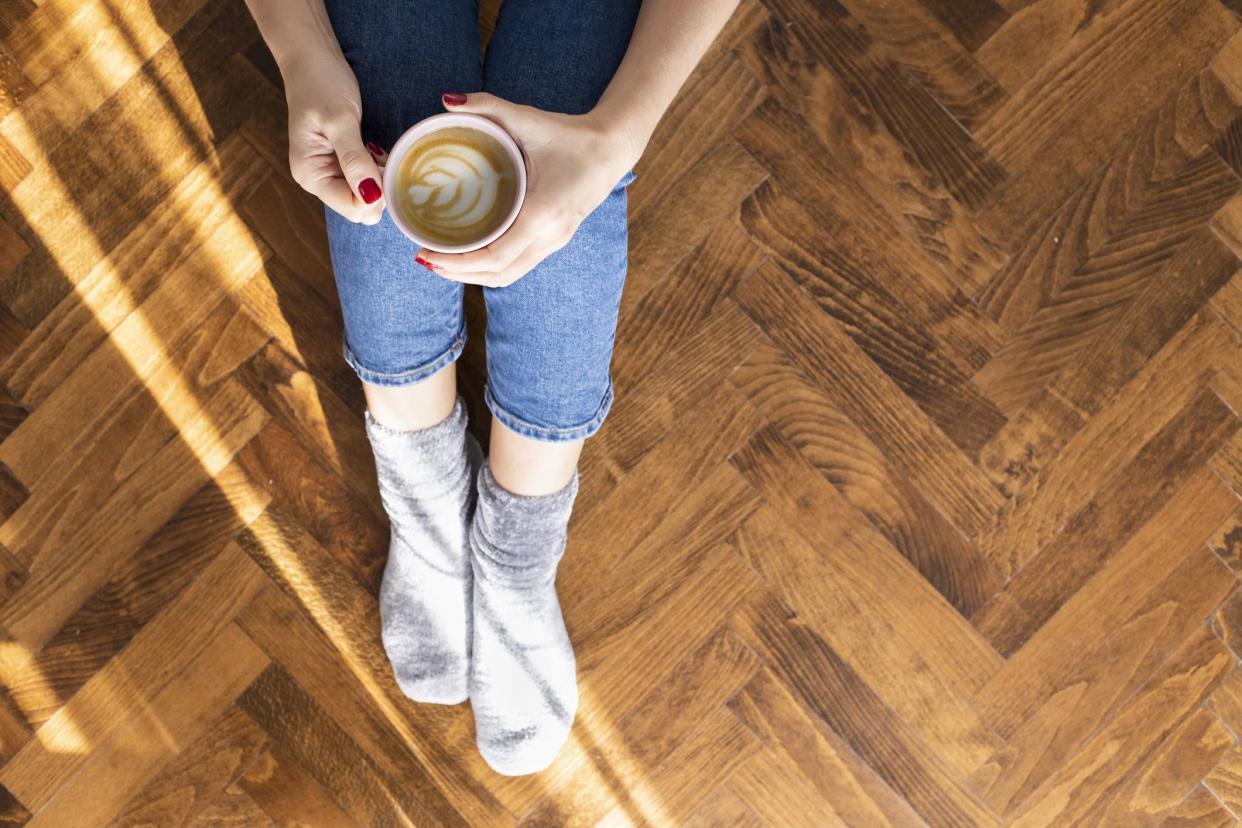
Unfinished Wood Furniture or Floors
Like the rustic look? Be careful. While Clorox says you can use its disinfecting wipes on wood, the company specifies it means only "polyurethane treated wood." Because unfinished wood acts as a sponge, it can absorb too much of the wipes' cleaning solution, eventually swelling, cracking, or warping. The Canadian Conservation Institute recommends dry cleaning methods such as using a stiff brush and a vacuum.
Related: 25 Spring Cleaning Mistakes You Keep Making Every Year

Fabric Upholstery and Carpet
Always check labels before using any sort of cleaner on fabric upholstery or carpet, which can become discolored when used with certain cleaners. And as Apartment Therapy notes, disinfecting wipes just plain won't work on most soft, porous surfaces.
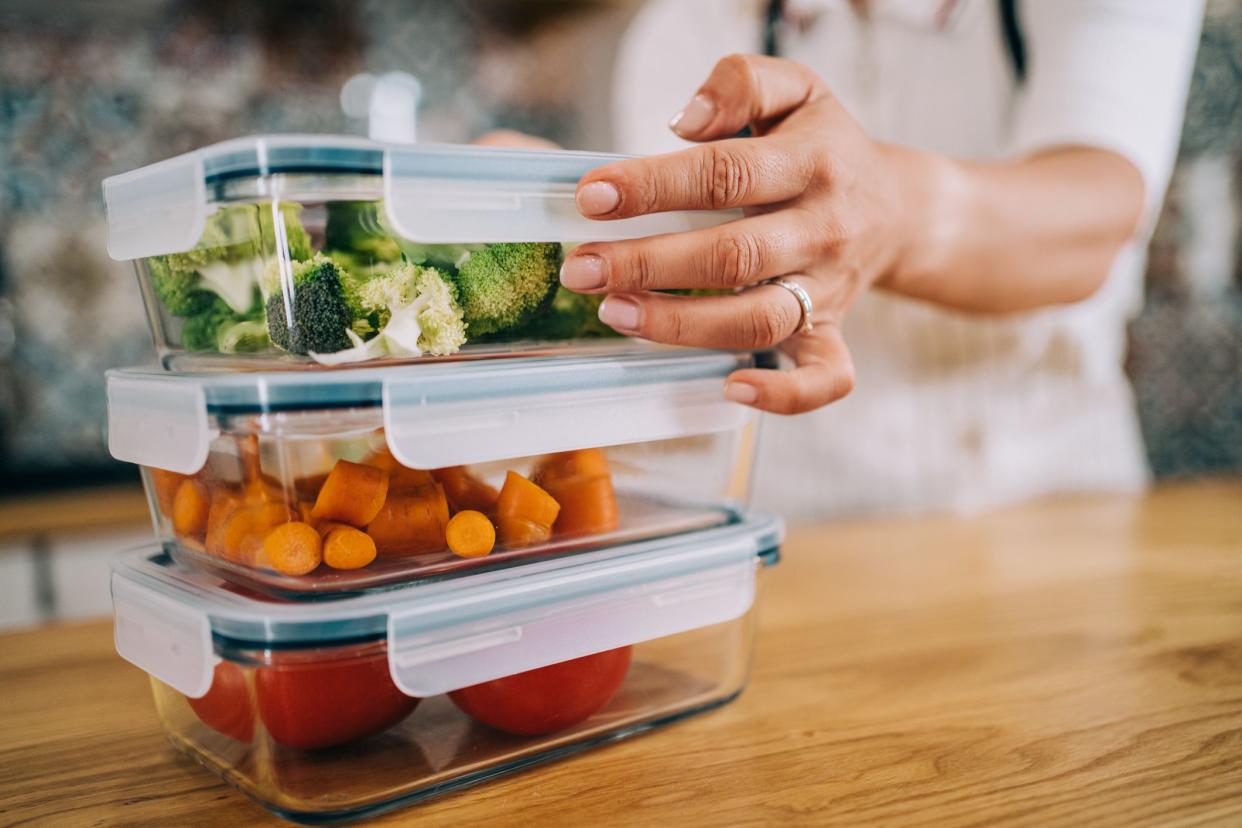
Dishes and Food Storage Containers
If you eat off of it or store food inside it, be sure not to wipe it down with a disinfecting wipe, as convenient as it may be. The chemicals in the wipes aren't meant to be ingested, of course, and can linger on hard surfaces. If you really want to disinfect your dishes, use the hottest water possible on their next trip through the dishwasher, buy antibacterial dish soap, or use a solution of bleach and water, Real Simple recommends.
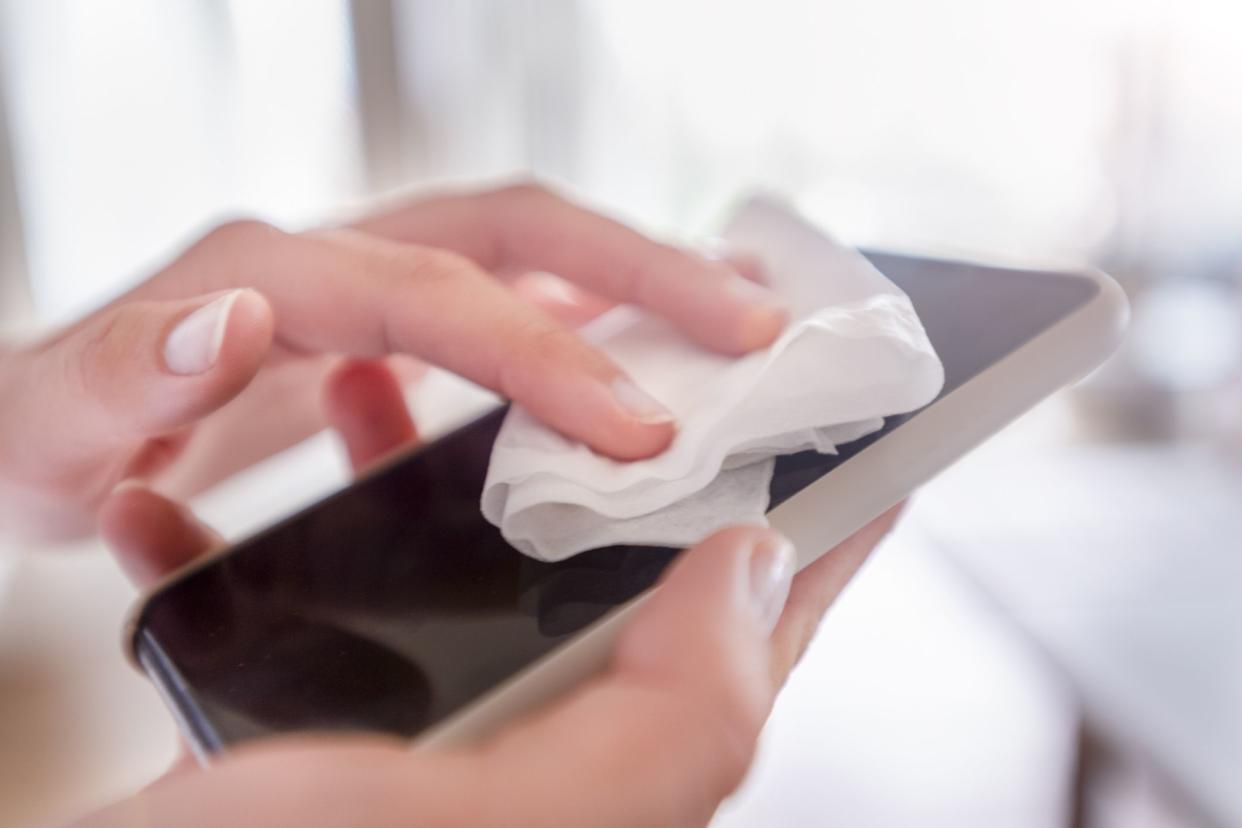
Use Caution: Your Smartphone
Until recently, most experts cautioned against using disinfecting wipes to clean your smartphone, but the pandemic turned conventional wisdom on its head. Apple now says it's okay to use wipes to clean your phone, but warns that you need to be gentle and stick to the hard outer surfaces, taking care not to get cleaner inside the charging ports or other openings. (For the record, Samsung also says disinfectants are okay, but recommends they be applied with a microfiber cloth.)
This article was originally published on Cheapism

More From Cheapism
Like Cheapism's content? Be sure to follow us.
